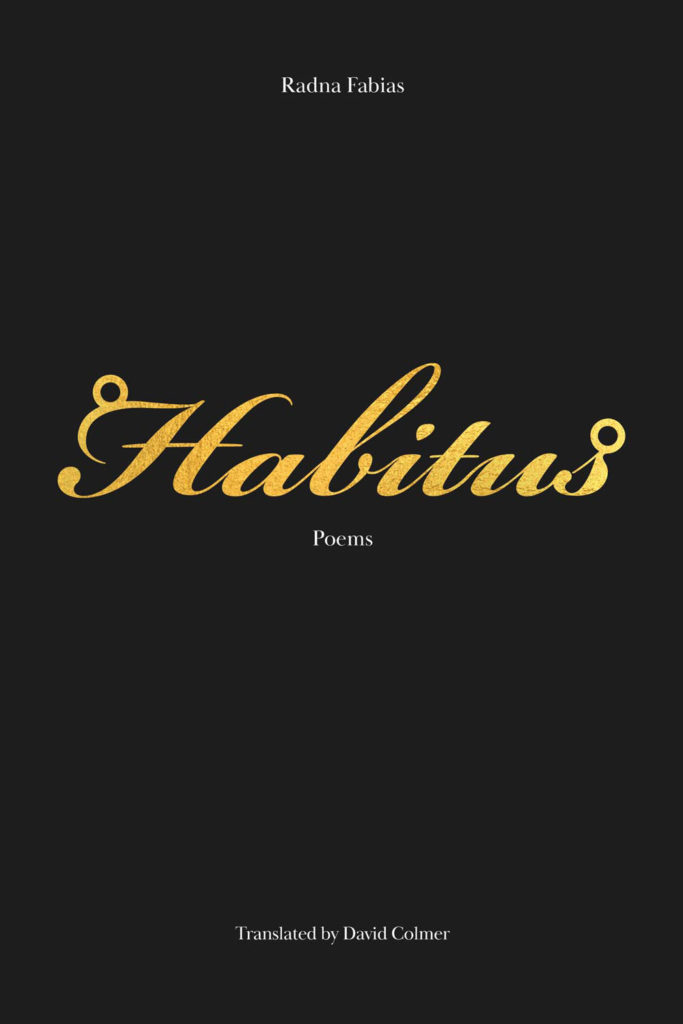This month’s reading picks from the Caribbean, with reviews of Habitus by Radna Fabius; A Regarded Self: Caribbean Woman-hood and the Ethics of Disorderly Being by Kaiama L. Glover; One Day, One Day, Congotay by Merle Hodge; and Josephine Against the Sea by Shakirah Bourne
Habitus
by Radna Fabius, translated by David Colmer (Deep Vellum Publishing, 128 pp, ISBN 9781646050987)
Radna Fabius’ poems possess the page. The Curaçao-born writer, who moved to the Netherlands as a teenager to study performance-based writing, makes the physical form of the book a living amphitheatre — flooding it with motion, light, technical mastery over the elements of sound and taste. Yes, these are poems you feel you can savour, as immediately identifiable as Caribbean constructions as they are astral, temporal navigators to less tangible realms. In “the blackness of the hole”, the poet expands her orbit to the cataclysmic, using an amorphous narrator to tell us “we believe the / black hole because the black hole does things to matter because the black hole does things to / stars”. In its original Dutch, Habitus swept the award circuit to critical acclaim: it ought to do no less in English translation.
A Regarded Self: Caribbean Woman-hood and the Ethics of Disorderly Being
by Kaiama L. Glover (Duke University Press, 296 pp, ISBN 9781478011248)
We need narratives for Caribbean feminism that travel beyond the madwoman in the attic, as powerful an anchor as that image in Jean Rhys’ Wide Sargasso Sea may be. Enter A Regarded Self, Glover’s scholarly enquiry that not only updates canonical responses to literary womanist selves, but expands the borders of their characterisation with wit and generosity. Studying principal female characters from the novels of Maryse Condé, Marie Vieux-Chauvet, René Depestre, Jamaica Kincaid, and Marlon James, Glover’s explorations take dual pathways in each chapter: analysis of how each personage functions in the text, and external study of that heroine’s (or anti-heroine’s) extra-textual imbrications. This is a work of scholarship, therefore, as committed to its source material as it is to enlivening discussions of Caribbean freedom, autonomy, and defiance.
One Day, One Day, Congotay
by Merle Hodge (Peepal Tree Press, 498 pp, ISBN 9781845235246)
Cayeri, the setting of Merle Hodge’s third novel, is a conventional place. Sums on a hard chalkboard, not the percussive strains of steelpan or tamboo bamboo, are meant to keep children in their preconceived roles. Gwynneth Cuffie, a schoolteacher caught at the crossroads of education’s rigid mores and the African rhythms of a musical future, is determined to fight for a real kind of change. If Cayeri, steeped in self-loathing born of colonialism’s spectres, is a direct reflection of Trinidad’s toxic conflicted past, Merle Hodge’s new fiction shows us that the path forward is always in stark confrontation of our ghosts. This fiercely feminist novel, a necessary antidote to complacency, child abuse, and tyrannical hegemonies in our region, is also beautifully written: in nearly 500 pages, there’s not a line that feels out of joint.
Josephine Against the Sea
by Shakirah Bourne (Scholastic, 304 pp, ISBN 9781338642087)
Long before this Barbadian writer and filmmaker made her debut in large-scale international publishing, those fortunate enough to read her self-published 2014 collection, In Time of Need, knew she had a knack for telling stories in children’s voices. Josephine Against the Sea, an expanded edition of her CODE Burt Award for Caribbean Literature finalist My Fishy Stepmom, vaults young readers right into the furnace of audacious girlhood. Cricket-loving, opinionated Josephine bridles against the patriarchy of her elders, preferring her father’s company to that of any adult’s — including the would-be interlopers vying for her dad’s hand. When Josephine confronts her father’s femme fatale Mariss, a lady with a serpentine secret, briny bacchanal ensues! Though marketed towards the American middle-grade reading system, this book will soar, flying-fish-style into the library of any curious, culture-focused adventurer.

